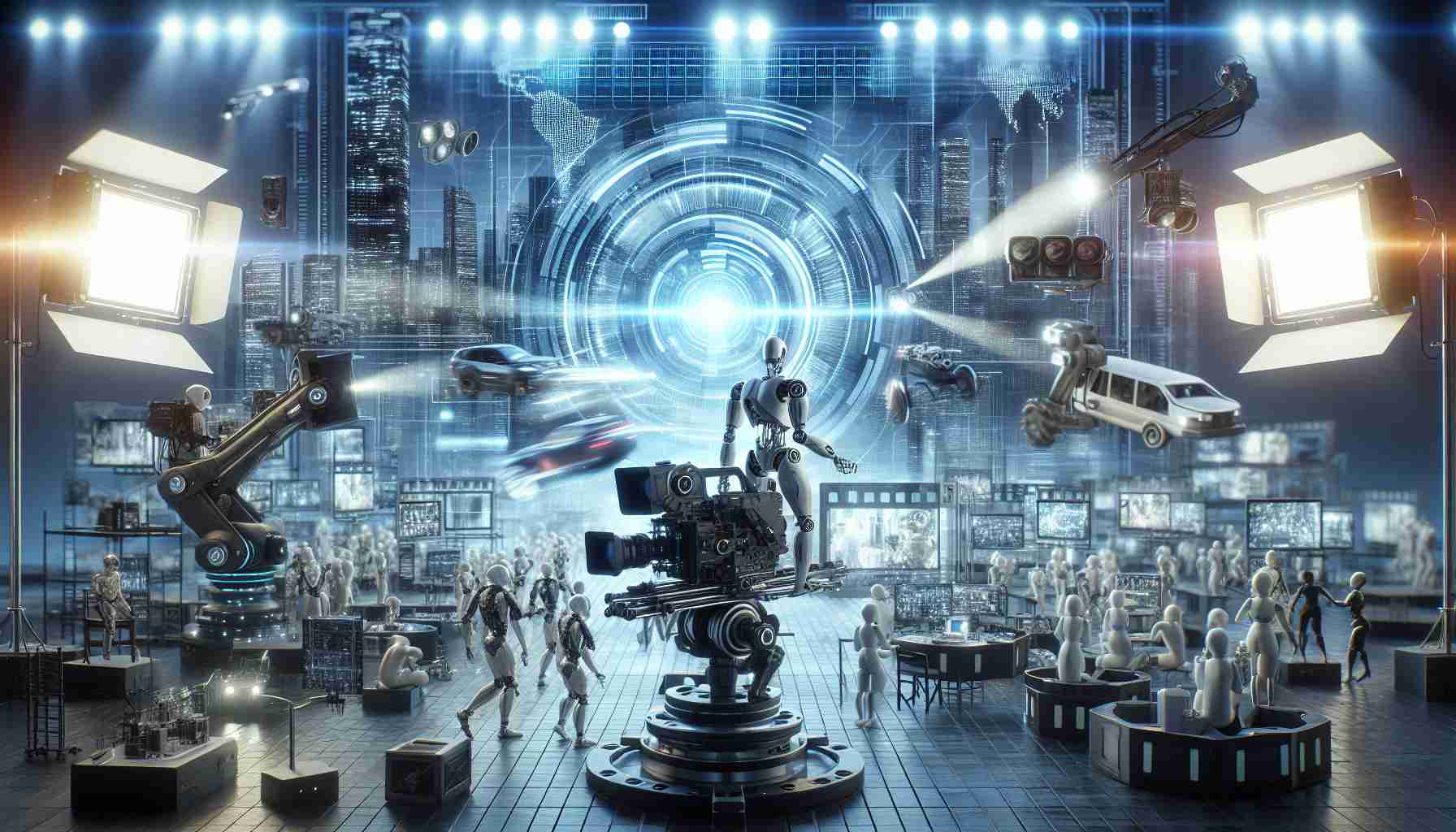The entertainment sector has reached an unprecedented milestone with the advent of generative artificial intelligence, signaling a new era in cinematic history. Generative AI is transforming filmmaking by producing convincing written content with remarkable speed, crafting photorealistic images instantly, and enabling the replacement of actors and extras with digital avatars. This cutting-edge technology hints at the near possibility of generating entire movies at the push of a button.
On Monday, May 27, 2024, at 11:55 PM, an exploratory multimedia project titled “The AI Manifest” will be launched by Collien Ulmen-Fernandes in collaboration with film professionals and AI specialists. Available in the ZDF media library and on ZDF, this experimental project delves into the opportunities, challenges, and limitations posed by the use of generative AI in the film industry.
Empowering Film Creators with an AI Manifesto
Guiding the way forward, four proactive filmmakers will unite for a day with a clear mission: to draft a manifesto that outlines guidelines for handling generative AI within their field. They will be joined and advised by four artificial intelligence experts to navigate issues from screenplay development to the ethical and legal concerns surrounding the data used to train AI systems.
Creative Interactions with AI on Social Platforms
Additionally, “Reactions from Hell,” a unique TikTok account conceived by the ZDF editorship, exhibits AI’s ability to engage in storytelling and humor, testing its limits through interactions with users. The account features a virtual devil character who takes on the modern challenge of influencing audiences on TikTok. For in-depth discussions and insights into AI within the filmmaking industry, stakeholders are turning to “Die KI-Redaktion,” a LinkedIn account that invites dialogue on AI tools, content, regulations, and observations from the TikTok experiment.
For further media inquiries, ZDF communications are accessible via email at [email protected] and by phone. Downloadable press photos and film previews for accredited journalists are also available through the ZDF press portal.
The article discusses the integration of artificial intelligence into the film industry, focusing on an exploratory project known as “The AI Manifest,” involving Collien Ulmen-Fernandes, filmmakers, and AI experts. While it touches upon various aspects of this integration, there are additional facts and considerations that are relevant to the broader conversation about AI’s role in filmmaking that were not mentioned in the article.
AI in Pre-Production and Post-Production
The role of AI extends beyond generating content and characters. In pre-production, AI is used for script analysis, predicting box office success, and streamlining logistics. In post-production, AI assists with editing, color correction, and visual effects. The predictive algorithms can help in decision-making to reduce financial risks.
AI and Employment in the Film Industry
One of the biggest questions is how AI will affect employment within the film industry. As AI takes on more roles traditionally filled by humans, from actors to editors, there could be significant impacts on job availability and the skills required to work in the industry.
Key Challenges and Controversies
Authenticity: With the capability of AI to generate human-like performances, there is an ongoing debate about maintaining authenticity in storytelling and performance.
Intellectual Property: When AI generates content, it skews traditional notions of authorship and intellectual property, opening up complex legal and ethical questions.
Deepfakes: The same technology enabling AI-generated characters can be used to create convincing deepfakes, posing risks for misinformation and consent regarding the use of someone’s likeness.
The Advantages and Disadvantages of AI in Filmmaking
Advantages:
1. Cost Efficiency: AI can potentially reduce costs by generating content and characters, eliminating the need for large casts and crews.
2. Speed: AI’s ability to quickly produce visual content and assist with editing can significantly expedite production workflows.
3. Innovation: AI opens doors for new storytelling methods and creative expression, potentially leading to unique and innovative films.
Disadvantages:
1. Job Displacement: The adoption of AI could displace jobs, especially for actors, extras, and various support roles in production.
2. Creative Control: There may be concerns about the loss of human touch and the homogenization of content when creativity is outsourced to algorithms.
3. Data Bias: AI systems can perpetuate biases present in the data they are trained on, which could lead to uneven representation in AI-generated content.
For additional information about the intersection of technology and entertainment, consider visiting these main domains for further insights:
Variety – A leading source for entertainment industry news.
The Hollywood Reporter – Offers in-depth reports on the film industry.
Wired – Focuses on how emerging technologies affect culture, the economy, and politics, including the entertainment sector.
Artificial Intelligence Blog – Provides articles and discussions specifically about AI developments.
When researching or linking to external sites, always ensure that the URLs are current and information is up-to-date as the internet landscape changes rapidly.

